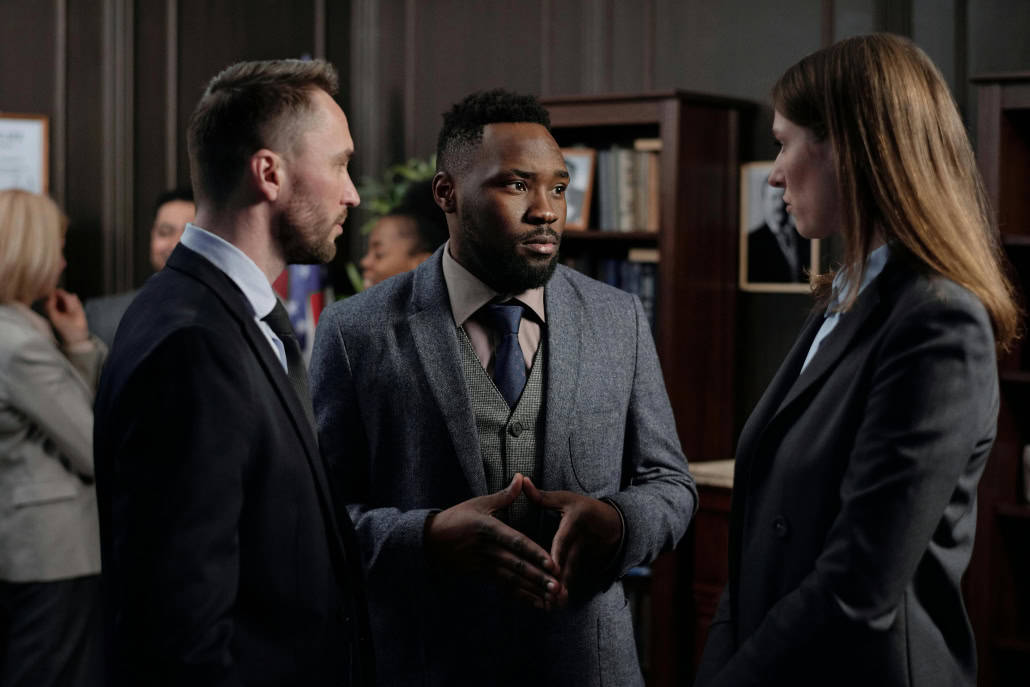How to Hire Your Next Commercial Real Estate Attorney
Choosing the right commercial real estate attorney is crucial for the success of any real estate transaction. The right attorney can help you navigate the complexities of real estate law, ensure compliance, and protect your interests. Attorneys also play a vital role in drafting, reviewing, and negotiating contracts, conducting due diligence, and providing legal advice tailored to the specifics of the real estate sector. Because of this, it is very important to initially select the right attorney to work with you. In this article, we’ll discuss the main points behind hiring a CRE attorney.
Note: This post is based on a 2020 podcast episode featuring Ronald Rohde’ explaining his personal advice for hiring a CRE attorney. You can find that original post here.
Understand Your Legal Needs
The first step to hiring a commercial real estate attorney is to complete analysis of your legal needs. Think about your project and what specialization within commercial real estate law it pertains to. These specializations can include areas like land use, zoning regulations, leasing agreements, property sales, acquisitions, and more. Each area demands specific legal expertise that can significantly impact the outcome of your project. For example, a lawyer specializing in land use and zoning would be crucial for projects requiring municipal approvals or facing community resistance.
Additionally, it’s important to distinguish between lawyers skilled in transactional work and those proficient in litigation. Transactional real estate lawyers are experts in drafting and negotiating contracts, handling the legal aspects of real estate transactions, and ensuring compliance with relevant laws. These skills are vital for smoothly processing real estate acquisitions, leases, and sales.
On the other hand, if your project carries a risk of disputes or legal challenges, a lawyer with a strong background in litigation may be necessary. Such a lawyer can defend your interests in court or through alternative dispute resolution methods, handling cases that involve breaches of contract, zoning disputes, or tenant issues.
Only once you understand what your specific legal needs are should you begin looking for a CRE attorney.
Identifying and Selecting the Right Commercial Real Estate Attorney
What Should You Value in a Commercial Real Estate Attorney?
When it comes to hiring a CRE attorney, understanding and prioritizing the aspects of speed, quality, and price is also necessary. These three factors often compete against each other, and while it would be ideal to maximize all three, practical constraints usually require prioritizing one or two, depending on the specific demands of your transaction.
Speed
Speed is critical when facing tight deadlines. This could include rapidly approaching dates for due diligence completion, contract signings, or court filings. Prioritizing speed means your CRE attorney must be prepared to act quickly and efficiently, delivering fast responses and expedited services. This may, however, increase costs, as quick turnarounds often come with premium fees, and it may even affect the thoroughness of the work if not managed carefully.
Quality
High-quality legal work can mitigate risks, provide comprehensive solutions to complex problems, and ensure compliance with all applicable laws and regulations. Prioritizing quality is essential for high-stakes or complex transactions that require meticulous scrutiny and expert handling. This might mean a higher cost or longer timelines, but the trade-off is a reduced risk of legal complications down the road.
Price
Finally, competitive pricing can be a priority for budget-sensitive transactions. It’s important to note, however, that focusing on cost may lead to compromises in the speed or quality of the service provided. When looking at more budget resources, make sure to check what services are included in a fee and what might constitute additional charges. Opting for less expensive legal services might be suitable for more straightforward, low-risk transactions, but it can prove risky for more complex deals.
Making a Decision
In making your decision, consider the specifics of your transaction and what is most at risk. For instance, in a high-value deal where a legal misstep could be costly, prioritizing quality might be more important than saving on immediate legal fees. Conversely, for a straightforward property acquisition with no apparent complications, prioritizing cost-efficiency might be more appropriate.
Ultimately, your choice should align with your strategic goals and the particulars of your real estate deal. By carefully weighing these three aspects—speed, quality, and price—you can select a CRE attorney who will provide the best balance for your needs, ensuring effective legal support tailored to your transaction’s unique demands.
Conclusion
Overall, hiring the right CRE attorney involves understanding your needs, making an informed hiring decision, and managing your relationship effectively. Make sure to maintain open communication, set clear expectations, and establish mutual understanding to create a productive working relationship.
To support your journey, we also offer a range of other free resources to teach you more about all aspects of the commercial real estate field:
- Confidentiality Agreement Template: Learn the essentials of drafting effective confidentiality agreements to protect sensitive information.
- Drafting Real Estate Business Terms with GPT-3: Draft business terms using AI technology.
- Letter of Intent for Multifamily Acquisitions: Access the template and tutorial for using a letter of intent for multifamily property acquisitions.
- Real Estate Partnership Agreement Template: Discover key considerations and get a free template for structuring CRE partnership agreements.
- Other Real Estate Deep Dives: Enhance your real estate knowledge with in-depth articles and analysis.
These resources will help ensure you select the right professional to support your real estate endeavors, enhancing both your understanding and execution of legal frameworks in commercial real estate.
Frequently Asked Questions about How to Hire a Commercial Real Estate Attorney
What’s the first step in hiring a commercial real estate attorney?
The first step is to “complete analysis of your legal needs.” Determine the type of legal expertise your project requires, such as zoning, leasing, or acquisitions, before beginning your search.
Why does specialization matter when choosing a CRE attorney?
Specializations like land use, leasing, or zoning “demand specific legal expertise that can significantly impact the outcome of your project.” For example, zoning lawyers are critical when municipal approvals or community resistance are involved.
What is the difference between transactional and litigation attorneys?
Transactional attorneys focus on “drafting and negotiating contracts” and ensuring compliance. Litigation attorneys are better suited when there’s a risk of disputes or legal action, such as tenant issues or zoning conflicts.
How do you find potential CRE attorneys?
Start by getting “referrals from industry contacts,” then expand your search with online directories. Look for lawyers with relevant experience and strong reputations in handling similar cases or transactions.
What criteria should you use to evaluate attorneys?
Evaluate based on “professional experience, client feedback, and standing in the legal community.” Go beyond resumes—use reviews and prior results to assess their professionalism and effectiveness.
Why are meetings with attorneys important before hiring?
Meetings help assess “communication style, grasp of your specific needs, and their case management approach.” These interactions show whether their approach and personality align with your expectations.
What trade-offs exist between speed, quality, and price?
“Speed, quality, and price often compete.” Fast turnaround may increase cost and reduce thoroughness; high-quality service takes more time and money; and lower cost may mean limited services or less experience.
When should you prioritize speed in hiring a CRE attorney?
Speed is critical “when facing tight deadlines” such as due diligence periods or court filings. Attorneys must “deliver fast responses and expedited services” to meet these urgent needs.
Is it ever smart to prioritize cost over quality?
Yes—for “straightforward, low-risk transactions,” focusing on price can be suitable. Just ensure you understand “what services are included” and any extra fees that might apply.
How do you make the final hiring decision?
Base your decision on “the specifics of your transaction and what is most at risk.” The attorney should align with your goals and offer the right balance of speed, quality, and price.









